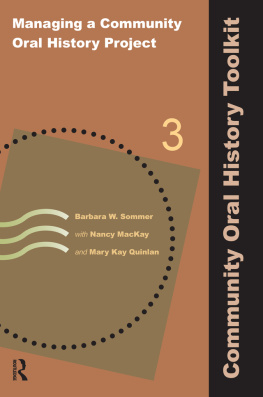Copyright 1988 by James Mellon
All rights reserved. No part of this book may be reproduced in any form or by any electronic or mechanical means, including information storage and retrieval systems, without permission in writing from the publisher, except by a reviewer, who may quote brief passages in a review. Scanning, uploading, and electronic distribution of this book or the facilitation of such without the permission of the publisher is prohibited. Please purchase only authorized electronic editions, and do not participate in or encourage electronic piracy of copyrighted materials. Your support of the author's rights is appreciated. Any member of educational institutions wishing to photocopy part or all of the work for classroom use, or anthology, should send inquiries to Grove/Atlantic, Inc., 841 Broadway, New York, NY 10003 or .
Published simultaneously in Canada
Printed in the United States of America
Library of Congress Cataloging-in-Publication Data
Bullwhip days : the slaves remember / edited and with an introduction by
James Mellon.
p. cm.
ISBN-13: 978-0-8021-3868-2
eISBN: 978-0-8021-9118-2
1. SlavesUnited StatesBiography. 2. SlaveryUnited StatesCondition of slaves. 3. Afro-AmericansHistoryto 1863.
I. Mellon, James.
E444.B95 1988
973.0496073022dc 19
[B]88-4967
Cover design by Calvin Chu
Cover photograph courtesy of New York Historical Society
Grove Press
an imprint of Grove/Atlantic, Inc.
841 Broadway
New York, NY 10003
Distributed by Publishers Group West
www.groveatlantic.com
12 13 14 1510 9 8 7 6
Introduction
H UMAN emotion, we are often reminded, is universal and timeless. Yet few of us pause to consider that innumerable human feelings and experiences have vanished forever because the conditions that gave rise to them no longer exist.
This book is about an entire range of human feelings that can no longer be experienced: the feelings that arose from the condition of being a statutory slave, of being owned, physically, by ones fellow man as a piece of property.
Men and women who have been imbruted and stripped of their human rights in these times by some mindless authoritarian government rightfully consider themselves enslaved. Theirs is a merely figurative form of slavery, however, for even the most brutal, most unabashedly nihilistic tyrants of the twentieth century have stopped short of claiming to own their victims as personal property. That this crassest of all claims was indeed advanced by hundreds of thousands of farmers in the American South until 1865 is a sobering, riveting fact. This book invites the reader to meditate upon that fact.
In the year 1619, only a decade after the founding of England's first successful colony in the Americas, a number of black Africans were put ashore from a ship at Jamestown, Virginia. Some form of cosmic thunder would have been appropriate at that epochal juncture, but as Thomas Jefferson later lamented, Heaven remained silent. A laconic diarist merely noted without comment that there came in a Dutch man-of-warre that sold us 20 negars. American slavery had begun.
Kidnapped by their tribal enemies in Africa or by the white sea captains who ferried them to these shores, despoiled of their customs, torn from their families and villages, countless African tribesmen were shunted across the Atlantic in the squalid holds of the slave ships. This nefarious traffic in human flesh, which had begun as a trickle, quickly became a torrent, until by i860 Abraham Lincoln felt compelled to declaim with distress and foreboding that almost one-sixth of the people then living in the so-called land of the free were in fact slaves.
By the mid-1930s, however, the four million black men and women who had been born in slavery and had subsequently been freed at the close of the Civil War had dwindled to a few thousand aged individuals scattered mainly throughout the Southern states. These were the last surviving Americans who had endured the cosmic arrogance of statutory slaverywho could bear personal witness to the now extinct feelings that arise from being physically owned by ones fellow man like a chair or table, like a dog or cat.
Aware that the memories of these former slaves amounted to an incomparable treasure trove of American history, and one that was quickly vanishing, the Federal Writers Project, an adjunct of the Works Progress Administration, dispatched a number of interviewersmen and women, whites and blacksto seek out and question the former slaves.
A typical interview would have occurred on the rickety porch of a former slaves shack, situated either in the country or in the ramshackle, colored section of a Southern town. There, the interviewer and his subject might have been seen slouched into rockers, drinking coffee, and chatting informally about antebellum days.
The interviewer would prompt the former slave with queries about his origins and family, his former masters and overseers, his daily routine of work, his food, cooking, and living quarters, his superstitions and religious beliefs, the medicines he made and used, the abuse he suffered, the songs he sang, the music he danced to. The former slaves responses to these questions were collated into a narrative account of his life, and this book consists primarily of twenty-nine such narrativesactual life stories of former slaveschosen from some two thousand similar accounts recorded by the interviewers between 1934 and 1941. Also included are nine collections of excerpts from the narratives, each of which relates to one or more particular aspects of slave life. The text has been lightly edited to improve readability.
P LATE 1 : Schematic plan of a slave ship.
The slave narratives bear eloquent witness to the trials that awaited the slaves in America. Sitting, as it were, in judgment upon their masters, the former bondsmen describe the feeling of being sold away from ones wife and children in a public auction, of being rented out, borrowed, traded for a mule or cow, insured for loss, willed to the masters relatives, seized as payment for debts, put up as collateral for loans, or simply lost by one's owner in a card game. We hear how some slaves were whipped for fun, raped, or made to fight one another like gladiators; how runaways were hunted by their masters on horseback and treed by packs of hounds; how a few bondsmen were rolled down bumpy hillsides in barrels that had nails driven through the sides, while others were boxed up in wooden crates and shipped to neighboring states.










